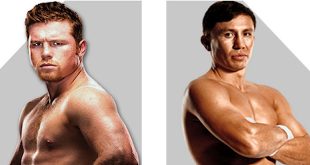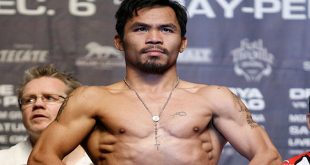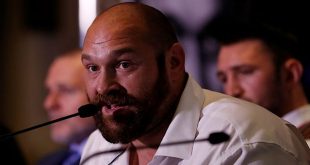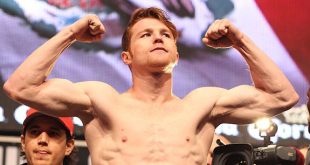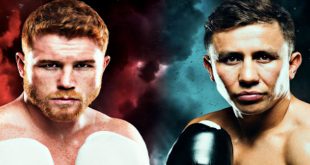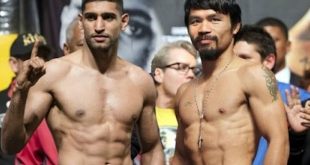This year marks the twentieth anniversary of one of the most emotionally draining years for British boxing fans. We were subject to both massive highs as well as agonising lows in 1986. We were put through such emotions by some of our most popular and well known boxers – men like Frank Bruno, Lloyd Honeyghan and Dennis Andries. In fact, in at least two of the three fights that are the subject of this article practically the entire nation held its breath when they took place. Our fighting heroes were going at it against the highest level of competition, and doing so on the world stage.
How could anyone – not just hardcore boxing fans but basically anyone with a passing interest in any sport- fail to be thoroughly engrossed by the fights that were unfolding? No one in the U.K, that’s for sure. For us Brits the year 1986, and the feelings the results of the fights I am going to recall in this piece inspired, will never be forgotten.
Let’s start with the pleasant memories. The Highs!
The year started on a very positive note for British fight fans when light heavyweight contender Dennis Andries got word that he was to fight for a world title. Dennis successfully challenged WBC champion J.B Williamson from the U.S.A, in April, and won a split decision over twelve rounds in London. The fight didn’t get as much attention as it should ( most of Dennis’ career was, unfortunately, not given the attention and respect it deserved) but nonetheless Britain had another world boxing champion to its credit.
Dennis followed the win with a successful first defence, against fellow Brit Tony Sibson, in September. The following year, however, Dennis was challenged by the legendary “Hitman” Thomas Hearns and lost his title while defending in Hearns’ hometown of Detroit. Andries went on to rebuild his fighting career under the tutelage of Tommy’s trainer, Emanuel Steward, after his KO defeat in 1987 though – showing the grit and courage he would eventually become known for.
Another fighter from England’s shores who was in no shortage of courage and heart was welterweight Lloyd Honeyghan. In September of ’86 he got the chance to fight a guy many rated as the best boxer, pound-for-pound in the world. Honeyghan went over to the States and challenged “The Lone Star Cobra” Don Curry for his undisputed welterweight championship of the world.
A huge underdog, Lloyd shocked the boxing world by hammering the previously unbeaten Curry to defeat in six rounds. This was a huge upset. More than a few experts had called Curry the next “Sugar” Ray Leonard. Such thinking was thrown into disarray at the end of the sixth round of his fight with “The Ragamuffin Man”. Curry quit on his stool and Bermondsey’s Lloyd Honeyghan was the new ruler. To this day this win ranks near the very top when it comes to great away wins for British boxers.
Lloyd went on to successfully defend his title (after relinquishing the WBA version due to political beliefs) on three occasions, before losing it to Jorge Vaca – only to regain it from him in a rematch. After which there followed one more night of world title glory – against the Korean Yung Kil Chung – before the superb Marlon Starling ended Lloyd’s time as a world champion. Honeyghan retired in 1995, safe in the knowledge that he is remembered as one of Britain’s finest ever fighting men.
Now to the bad news. The lows.
Ireland’s Barry McGuigan was a hero. Not only to the people of Ireland, but to boxing fans (and non boxing fans when it comes down to it) from all over. Now he was being groomed for stardom in America. His first top of the bill appearance was to be held at Caesars Palace in Las Vegas, against one Steve Cruz. This is a fight that is still talked about amongst British fight fans to the very day.
Talk about the result, and most everybody will tell you that the heat of the Vegas desert, and this alone, caused Barry’s loss. There is no doubt that the burning heat and high temperature was a huge factor in the outcome of the fight – between a guy who was used to such weather conditions and one who in no way was – but the boxing skills of the little known Stevie Cruz played a role too.
More than likely Barry would have won had the fight been held in his native Ireland, but going in to the fight with the nine to one underdog no-one was at all concerned with the thought of him losing his featherweight title.
Making his third defence after winning the title in a fine fight with Eusebio Pedroza, McGuigan was in desperate trouble in the last third of the bout. Sheer heart alone carried him through fatigue and pain as Cruz opened up and landed his best shots. Barry was thoroughly exhausted and was sent to the canvas on three occasions.
He somehow survived to hear the final bell, but after fifteen gruelling rounds his title was gone. The heat certainly did prove to be a massive hindrance to McGuigan, as his being put on an IV drip afterwards more than showed, and in hindsight he should not have fought in such conditions in an outdoor arena.
Many never expected Barry to fight again after the June fight but he did come back – two years later- and managed to chalk up three wins as a super featherweight. He retired after his loss to Jim McDonnell, only his third as a pro, in 1989.
But it is that awfully hard fight in Las Vegas for which he is probably best remembered. For although he lost, causing some serious heartache for his many fans in the process, his astonishing courage was something to behold. No less than Ring magazine gave the McGuigan v Cruz bout its fight of the year award for 1986.
How best could the spirits of Britain’s fight fans be lifted after such a depressing result? A heavyweight champion of the world hailing from England might very well do the trick. And this was Frank Bruno’s massive task in July of ’86.
Britain had not had a heavyweight ruler since Bob Fitzsimmons almost a century ago. Now Big Frank was getting a shot at Tim Witherspoon’s WBA version of the title – and on home soil too. A sell-out crowd at Wembley watched with hope to see if their heavyweight hero could finally bring at least a portion of the heavyweight championship back to England.
Judging by the fighter’s physiques Bruno had a great chance. For while he was as impressively muscular as ever Witherspoon sported a more flabby and apparently under trained body. Could Frank capitalise on “Terrible” Tim’s seemingly poor condition?
Sadly the answer was no. Despite giving it a very brave go, Bruno was outlasted by Witherspoon, who possessed more stamina and a greater ability to relax in the ring, and brutally knocked out in the eleventh round. Frank took some serious shots to the head in this session and finally crumpled to defeat in the referee’s arms with only a few seconds remaining in the round.
After the pain of the McGuigan defeat none of the joy was restored to British fight fans on the night of July the 19th – in spite of Frank’s courageous effort. Bruno refused to give up though, and finally – at the fourth time of asking – he managed to win a version of the world title by beating Oliver McCall in 1995. He remains one of Britain’s best loved sportsmen.
Yes, looking back on the, sometimes demoralizing, sometimes blissful, year of 1986 certainly succeeds in stirring some memories. Not that they need too much stirring, however, for surely the headline dominating fights recalled above will never be forgotten by any British fight fan who was of sufficient age to have witnessed them when they occurred – twenty years ago!
 Boxing News Boxing News
Boxing News Boxing News
